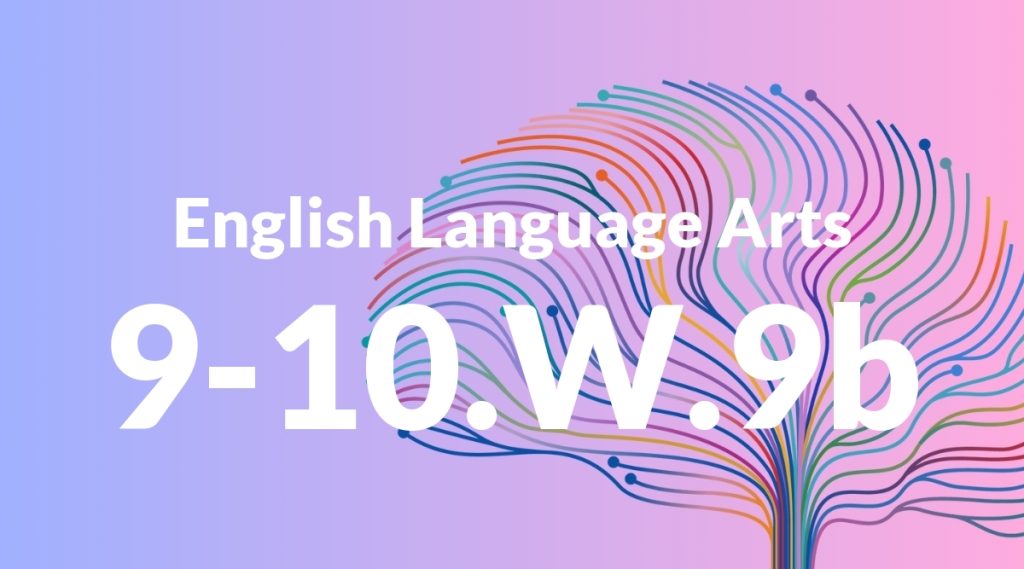Standard: 9-10.W.9 – Draw evidence from literary or informational texts to support analysis, reflection, and research.
Grade level: Grade 9-10
Subject: English Language Arts
Domain: Writing
Teacher Overview
This standard emphasizes the importance of using textual evidence to support analysis, reflection, and research. It is crucial for developing critical thinking and writing skills, which are essential for academic success in high school and beyond. Before tackling this standard, students should know how to identify main ideas and supporting details, and have experience writing structured paragraphs.
After mastering this standard, students will be able to conduct more complex research projects, synthesize information from various sources, and construct well-supported arguments in their writing.
Common Misconception 1
A common misconception is that personal opinions alone are sufficient for analysis. This is incorrect because academic analysis requires evidence from the text to support claims, ensuring arguments are credible and well-founded.
Intervention 1
To address this misconception, provide exercises that require students to find and cite specific textual evidence to support their analysis. Use graphic organizers to help them structure their arguments.
Common Misconception 2
Another misconception is that summarizing a text is equivalent to analyzing it. This is incorrect because analysis involves interpreting the text’s meaning and significance, not just recounting its content.
Intervention 2
To remediate this, encourage students to ask ‘why’ and ‘how’ questions about the text, guiding them to explore deeper meanings and connections. Use peer review to help them refine their analytical skills.
Prerequisite Knowledge
Students should be familiar with basic literary terms, understand how to identify main ideas and supporting details in texts, and have experience writing structured paragraphs.
Subsequent Knowledge
Students will develop advanced research skills, learn to synthesize information from multiple sources, and enhance their ability to construct well-supported arguments in writing.
Instructional Activities
- Textual evidence scavenger hunt
- Group analysis of a short story
- Research project on a historical event
- Debate using evidence from texts
- Peer review sessions focusing on evidence use




